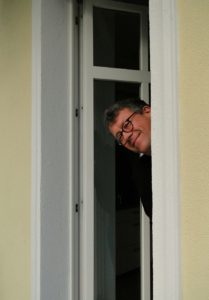Winter Roots Roundup is pleased to welcome Dr. Philip Bohlman to UAlberta as a guest speaker with the Department of Music‘s 2016-2017 colloquium. Dr. Bohlman is an ethnomusicologist and a Distinguished Service Professor of Music and the Humanities at the University of Chicago.
This academic presentation will explore the relationship between music and history, the growing interest in the field of ethnomusicology, and the meaning of folk song in today’s political and historical landscape.
This lecture is free and open to the public – we hope you will join us!
When: Friday, February 3rd, 2017
Time: 4:00PM
Where: BUS 1-05, Business Building
UAlberta North Campus
Lecture Abstract
“Again, Folk Song: Herder, Voices of the People, and the Return to History”
By coining the term, “folk song,” and applied it to a class of global musical practices for the first time, Johann Gottfried Herder (1744–1803) established a new paradigm for recognizing and representing the relation of music to history. Folk song, Herder held, entered into history in counterpoint with history’s entry into folk song. The folk songs the philosopher, theologian, and anthropologist Herder gathered and published for the seminal volumes, Alte Volkslieder (1774), Volkslieder (1778/1779), Der Cid (1778), and Stimmen der Völker in Liedern (1807) formed at the confluence of time and space, hence accruing to a “moment of history in music.” Folk songs in these collections came from historical sources in the past and ethnographic encounter in the present, and in their common historical context they made possible new narrative paths in the future.
I turn to the Herderian moment of history in music, to which I have attempted to give narrative direction through my own recent translation of Herder’s writings on music and nationalism (Song Loves the Masses, California 2017), to ask several questions about the relation of music to history and history to music. At one level, I seek to contribute to the growing study of the intellectual history of ethnomusicology. I also search for the position of historical agency in the transformation from musical object to subject. Finally, I turn to the meaning of folk song in the global politics of the moment of history in music that is our own day, examining the ways in which we might turn, again, to folk song in order to return to history.
